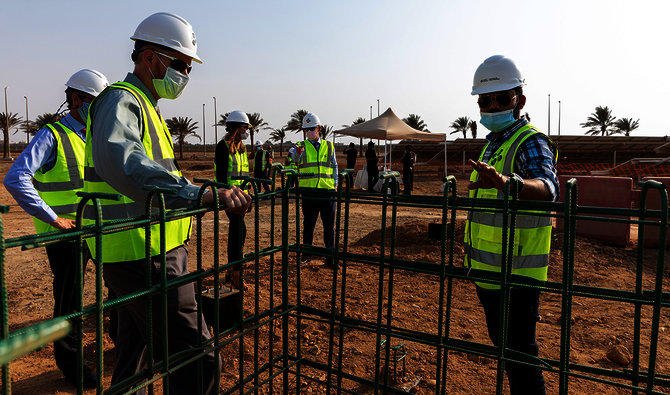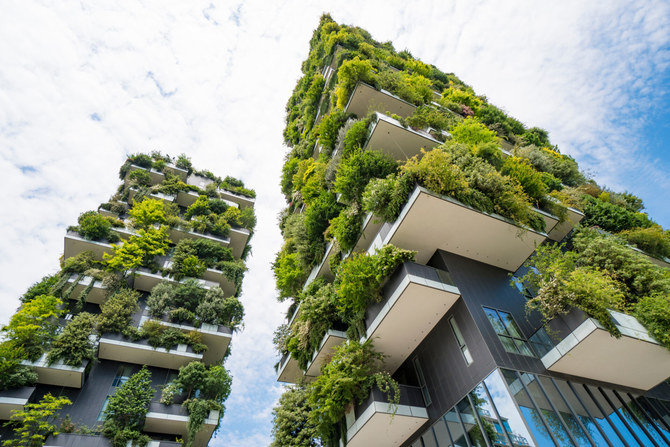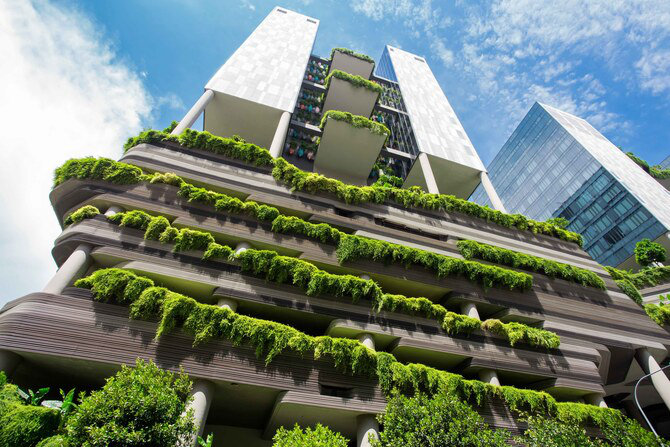JEDDAH: Nahj, a nonprofit organization, has recently launched its Summer Training Program to empower youngsters, which is set to run until Aug. 15 in Riyadh and Jeddah.
The initiative aims to create a unique internship and training experience, in collaboration with leading companies such as Mrsool, Najm, and Care Hospitals, covering diverse sectors including healthcare, law, business development, engineering, and technology.
Nahj is to select between 70 and 100 top students, focusing on those at high school and those under 20, and match them with companies based on their interests, skills, and CVs. The program aims to guide students toward their desired career paths by providing experience and insights.
Rakan bin Bader, CEO and founder of Nahj, said: “As a young leader, I understand the importance of exposing young trainees to market demands. Vision 2030 places a significant emphasis on the role of youth in driving our country’s future.
“This unique chance excites me and motivates me to create opportunities for youth development and empowerment. By equipping young people with the necessary skills, we can prepare them to become great leaders who will contribute to our community and help realize this ambitious vision.”
Bader spoke of the key objectives of the initiative, emphasizing the need to bridge the gap between education and employment, provide practical training, and enhance the skills of young professionals.
He added: “We aim to equip them with the necessary tools to meet market demands and become successful leaders. By offering hands-on experience and mentorship, we hope to inspire and empower the youth to contribute positively to the Kingdom’s development.
“Our ultimate goal is to support Vision 2030 by creating a generation of well-prepared, capable, and innovative young leaders who will drive our nation’s progress.”
While addressing the challenges facing young professionals in Saudi Arabia, he highlighted the misalignment between educational outcomes and market needs.
He explained that although the educational system is robust, there is often a gap between academic knowledge and the practical skills required.
He added: “There is a growing emphasis on innovation, entrepreneurship, and the development of digital skills. The government and private sector are increasingly investing in programs and initiatives that support youth empowerment and career readiness.”
Jenan Kamal, chief operating officer and co-founder of Nahj, said: “One of the main challenges, particularly from an operational perspective, is selecting a limited number of students from a pool of highly qualified and experienced applicants.
“To address this, we partnered with multiple companies to increase the number of available seats. Additionally, we set high standards and implemented a rigorous application process to ensure we selected the best of the best.”
Kamal added: “We expect this program to lead change in both the private and public sectors, advocating for greater youth empowerment for those under 20.
“By raising expectations and setting a higher bar for young people, we aim to align with Vision 2030’s goals, fostering a culture of excellence and innovation among the youth.”
Rozana Al-Banawi, the founder of Qeema, the first Arabic personal financial coaching group, said: “Our program offers students a unique opportunity to enhance their understanding of startup culture, fintech, and personal financial coaching. By focusing on the intersection of these fields with well-being, research, and data, we aim to equip students with both soft and technical skills relevant to various professions.
“Emphasizing the development of a growth mindset, leadership, teamwork, self-discipline, and emotional intelligence, our program provides a practical, real-world learning experience. It encourages students to explore their motivations, expand their networks, and understand workplace complexities, ultimately fostering long-term benefits and personal growth.”
Danah Al-Jarboua, a high-school student entering 12th grade, shared her aspirations and expectations for the Nahj/Mrsool internship.
She said: “As I approach graduation, clarity in my career path is crucial. (I am) interested in industrial engineering (and) this program offers me the opportunity to explore and gain practical experience in a field that captivates me. It will help me discern if industrial engineering aligns with my ambitions, and illuminate the path ahead.
“Through practical assignments and mentorship, I aim to bolster my problem-solving, project management, technical, teamwork, and communication skills.
“These insights will not only guide my academic decisions but also fortify my college applications and lay a strong foundation for my future career.”
Bayan Kamal, a driven business intern with aspirations in marketing, reflected on the impact of the internship program, saying: “My career path is firmly set on marketing, and this internship has reaffirmed my direction by providing invaluable hands-on experience and strategic insights into marketing strategies.
“Through managing and engaging with audiences on social media platforms, I aim to enhance my social skills and public-speaking abilities, crucial for effective communication in marketing roles.
“This program offers me early exposure and practical knowledge that will undoubtedly give me a competitive edge in my future career. I look forward to showcasing my acquired experience and skills, setting a strong foundation for my journey in marketing.”
Bader is optimistic regarding the future of career development and talent acquisition in Saudi Arabia.
He said: “We are moving towards a more dynamic and inclusive job market. Emphasis on continuous learning, upskilling, and reskilling will become crucial. Companies are recognizing the value of investing in young talent and creating environments that foster growth and innovation.
“By leveraging technology and embracing new educational models we can ensure that young professionals are well prepared to meet future demands and contribute significantly to the Kingdom’s progress.”


































